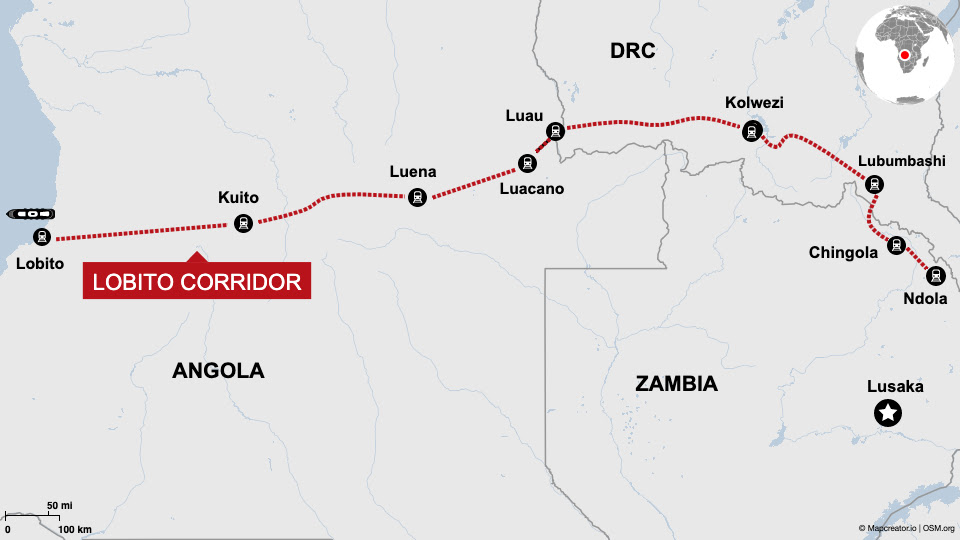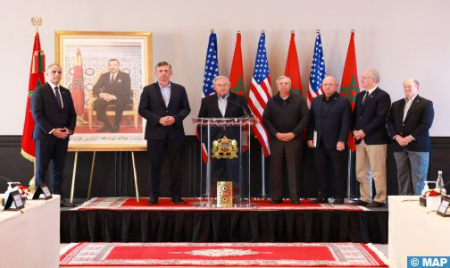The US is planning to counter China’s strategy regarding rare metals in Africa through investing in a rail project connecting copper and cobalt mines in central Africa to Lobito port in Angola.
The new route, which could potentially extend to Zambia, offers an alternative route to export rare metals to the Chinese controlled outlets.
It also denotes a quest by the US to catch up with China in Africa, where Chinese companies have invested massively focusing on rare metals, such as cobalt and lithium which are key to energy transition, notably the batteries industry.
The US has committed to funding the rail with $250 million, hoping it will connect the copper belt region in the DRC and Zambia to Angola’s Lobito port.
“US economic and national security depend on securing a reliable supply of critical minerals, including from Africa,” the United States Institute of Peace said in a report a few days ago.
The US relies on imports for the supply of most of the minerals used in energy transition, such as lithium and cobalt.
“Especially concerning is that the United States is at or near 100% reliant on ‘foreign entities of concern’ — mainly the People’s Republic of China — for key critical minerals,” says the report.
China takes the lead as far as the exploitation of rare minerals in Africa. Therefore, Washington must roll out “more vigorous commercial diplomacy with a keen eye toward building critical minerals partnership in Africa,” the 76-page report said.
The US is “simply not on, or even near, par in competing with China” for critical minerals investment and diplomacy in Africa, and needs to take a vigorous approach, it said.
Chinese firms owned or had stakes in 15 of the 19 cobalt producing mines in the Democratic Republic of Congo (DRC) which produces more than 70% of the world’s cobalt.



